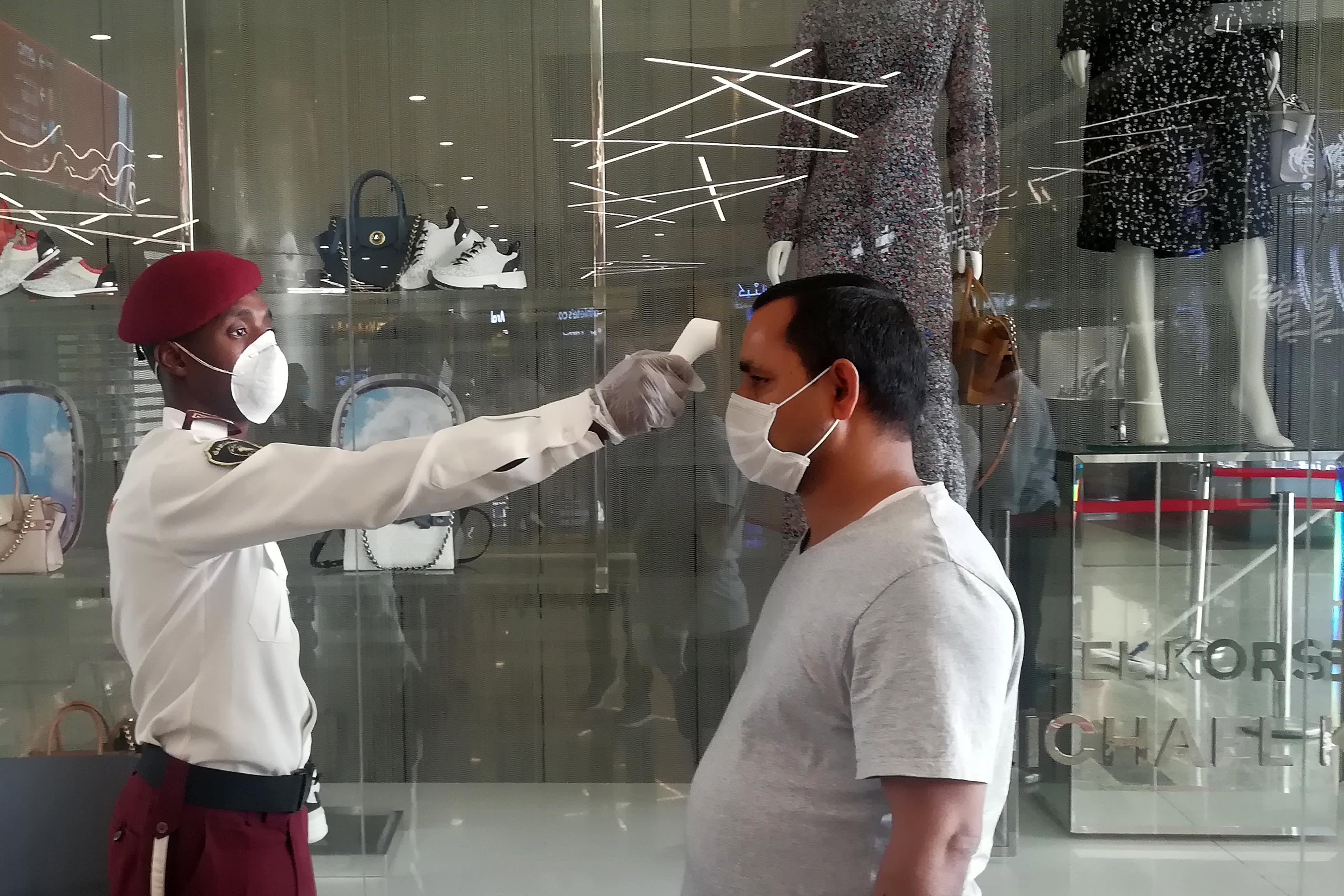DUBAI, United Arab Emirates – The International Monetary Fund raised its economic outlook for growth in the Middle East and North Africa region in 2020 by 1.2 percentage points, to a general contraction of 3.8%, showing that, despite some progress since the beginning of the coronavirus pandemic, it’s still been a brutal year by any account.
Recovery will be varied and largely based on countries’ investments and strategies for vaccine distribution. But there was one positive point for the Gulf states in particular – the lifting of the political and economic blockade to Qatar by other GCC countries, IMF director for the Middle East and Central Asia, Jihad Azour, told CNBC on Wednesday. .
Although the full details of the reconciliation agreement between the blocking states – Saudi Arabia, United Arab Emirates, Bahrain and Egypt – and Qatar are not publicly known, Azour told CNBC Hadley Gamble that “any improvement in terms of opening up borders improves economic relationship will provide additional growth potential. ”
“Of course, this will improve trade, especially in rates for goods and services,” he added. “It will reduce the acquisition cost, for example, for Qatar, it will also help airlines by reducing the cost. Therefore, there is always a benefit in improving economic relations, mainly because we are now entering a new phase of globalization. ”
A security guard checks the temperature of the man who arrives at a shopping mall in the Saudi capital, Riyadh, on May 4, 2020, as shopping malls reopen after authorities began a partial suspension of the blockade.
Fayez Nureldine | AFP | Getty Images
The news, which saw a dramatic three-and-a-half-year dispute come to an end, is a likely investment advantage as well, Azour said. “I think this is good for business in the short term, but also in the long term, in the sense of opening up a bigger space for investors. And this is something that will be valued.”
The Financial Center of Qatar alone intends to attract $ 25 billion in foreign direct investment flows by 2022, as a result of the rapprochement, CNBC reported in January. Airlines, manufacturing and food production are among the other areas that are likely to see large increases.
The vaccine strategy will be crucial
In the wider region, the improvement in the outlook was based on “stronger than expected performance among oil exporters, as the absence of the second wave in some countries boosted non-oil activity, and the impact of the first wave. was less than expected, “wrote the IMF in its report on regional perspectives.
Still, the prospect of recovery is uneven and will depend heavily on government vaccine plans. This varies “from countries with very diverse vaccine contracts and production capacity to fragile and conflict-affected states that largely depend on COVAX,” wrote Azour in his report. COVAX is a global scheme led by an international vaccine alliance and WHO, established to ensure equitable access to the vaccine for all countries in the world.
The disparities are obvious: rich Middle Eastern countries like the United Arab Emirates and Israel are on their way to vaccinate half of their populations by March and present the world’s fastest vaccination campaigns, while poorer countries and territories like Palestine depend in a large part of COVAX and have not yet received vaccines for the general population.
“Our analysis is showing that countries that have invested heavily in acceleration, accelerated vaccination, will see the recovery moving faster,” said Azour.
Countries that have applied stronger fiscal responses to the Covid-19 crisis “are also expected to make a stronger recovery in 2021, aided by a shallower depression in 2020,” wrote the IMF report.
He added that, although there are already several vaccines on the market, the battle is far from over.
“While vaccines shine a light of hope, the path will be long and tortuous,” said the report. “In the short term, the main priority remains to ensure that health systems have adequate resources, including financing the purchase and distribution of vaccines.”
